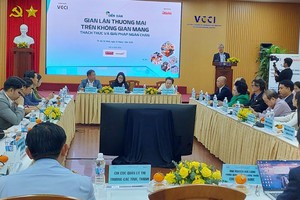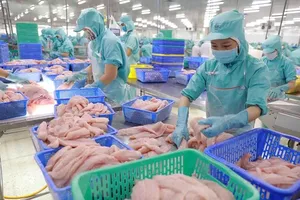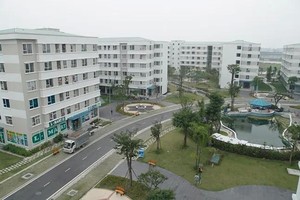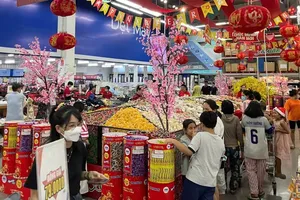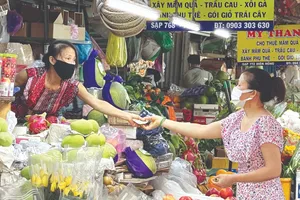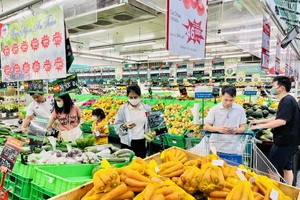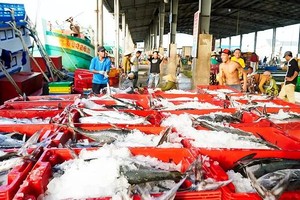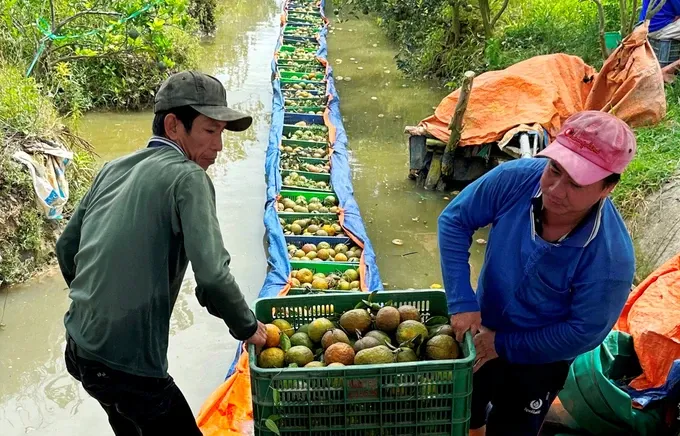
Production Unit Code (PUC) and Packaging Housing Code (PHC) are the two essential components of the passport for Vietnam to enter picky international markets such as the US, Australia, Japan, the Republic of Korea, and China.
The Agriculture and Rural Development Ministry reports that the Mekong Delta now owns the largest quantity of PUCs in the country, at nearly 4,000 valid pieces (accounting for 57 percent). The province with the highest number of PUCs is Dong Thap.
The Mekong Delta is also leading the country with 626 valid PHCs, occupying about 40 percent; yet, many areas in this region have their PHCs withdrawn and do not carry out regular checking of PUC criteria.
In particular, Dong Thap Provine and Long An Province have nearly 2,500 PUCs and 290 PUCs respectively. However, the proportions of frequent checking in these areas are only 23 percent and 0.3 percent, much lower than the regulated annual examination.
In contrast, Hau Giang Province has satisfied this monitoring criterion at the percentage of 80 percent for areas with PUCs and about 95 percent for those with PHCs.
Bio Fruit Coop in Hau Giang Province, for instance, receives a fruit export turnover of more than VND100 billion (US$4.12 million) a year thanks to establishing GlobalGAP orchards. Members of the cooperative strictly observe the standardized processing procedure, along with keeping a full production diary. These become valid data to answer the requirements of the GlobalGAP standards and to earn PUCs.
With such a prestige, the cooperative’s merchandise can easily enter the markets of English, Germany, the Netherlands, Turkey, and Poland. The orchards of the members have been expanded from 400ha in 2022 to 650ha, sited in Hau Giang Province, Soc Trang Province, and Can Tho City. In the future, Bio Fruit Coop will help member farmers to keep a digital diary via a smart phone to synchronize data and prepare documents for PUC registration more conveniently.
Hau Giang Province is now accelerating the procedure to issue 120 PUCs for exported produce, especially for key fruit trees like jackfruit, lime, grapefruit, durian, banana, and rice plant. These agricultural products will be sold in the markets of China, Europe, New Zealand, Australia, and the US.
“The management of PUCs in the province is done through a software piece, ranging from the steps of inputting orchard location information to logging production each day. These are valuable data for the province to digitalize its agricultural section”, said Deputy Director Nguyen Thi Giang of the provincial Department of Agriculture and Rural Development.
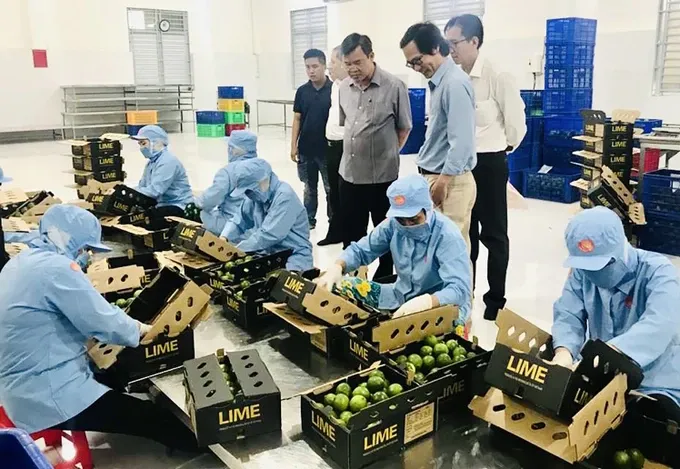
The issuance of PUCs and PHCs is a great effort in the digital transformation process of the agriculture sector. However, the monitoring tasks after the release of these codes are even more essential. Sadly, most provinces have just paid attention to instructions about establishing or issuing new codes, not directions for regular checking. This is the main reason why many violating export shipments have received warnings from plant quarantine bodies in destination nations and have had to return home.
Tien Giang Province now has 80,000ha of fruit trees to grow 11 key fruits. About 280 PUCs have been released for an area of more than 20,300ha, and 307 PHCs have been delivered to serve export purposes. The province forms an inter-disciplinary checking team, who has already conducted 7 checking rounds on regulation observance in 33 out of 39 packaging houses.
The result reveals that three can satisfy all conditions to create a packaging house; 19 can maintain necessary conditions for a PHC but have not equipped workers with proper labor protection clothing or kept a daily planting log; 11 cannot ensure PHC conditions as requested at the registration time.
Tien Giang Province is piloting a database software piece for the management of durian orchards in key areas. The software displays essential information of these areas on a map, which is the foundation to later digitalize all planting areas of durian and other key plants.
“Can Tho City is focusing on issuing PUCs via an identification measure where each plant growing area (normally using GPS) is associated with a specific producer. These areas are encouraged to follow good agricultural practices like keeping a daily planting log to serve origin tracking when needed. The agriculture sector of the province is working with related units to develop a production administration platform exploiting digital technologies for identifying planting areas and logging daily planting activities synchronously”, said Deputy Director Tran Thai Nghiem of the Agriculture and Rural Development Department of the city.
According to Director Nguyen Van Man of the Agriculture and Rural Development Department of Tien Giang Province, for PUCs and PHCs to prove their effectiveness, agriculture support and service centers must frequently train farmers so that these laborers clearly understand and properly follow farming techniques, agricultural practice standards, and suitable plant care steps according to each area. The checking task is of extreme importance, and any place unable to meet the requirements must have their PUCs, PHCS withdrawn.
Deputy Director Tran Thai Nghiem of the Agriculture and Rural Development Department of Can Tho City said that the implementation of diverse technologies in agriculture has contributed to forming large-scale, concentrated produce production areas such as a high-quality rice area of over 35,000ha, intensive pangasius fish area of over 800ha, fruit tree area of 10,000ha in Can Tho City.
However, due to inconsistent policies and mechanisms, the allocation of budget has encountered many obstacles. The public-private partnership mechanism is not specific enough. Therefore, to foster the implementation of digital technologies and AI, functional agencies should urgently complete the legal basis in this field (resource allocation, necessary limits) so that data collection and establishment can be accelerated for smoother operation.
Farmer Nguyen Van Man from Thu Thua District of Long An Province shared that he has 5,000 yellow apricot trees. The caretaking tasks for these trees like watering, humidity checking, providing suitable warmness and light are done via a system exploiting Internet of things. Only with a few actions on his smart phone, Man can turn on or off the water faucets for watering, balance the light for the whole garden, adjust water or light levels. Thanks to the help of the local agricultural center, he is now used to operating these systems, regardless of their big names like IoT or AI. He hopes that other farmers in the country can receive more technical help to effectively implement technologies in agricultural production activities.












